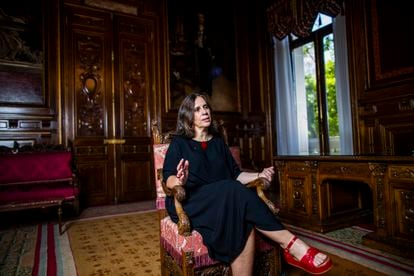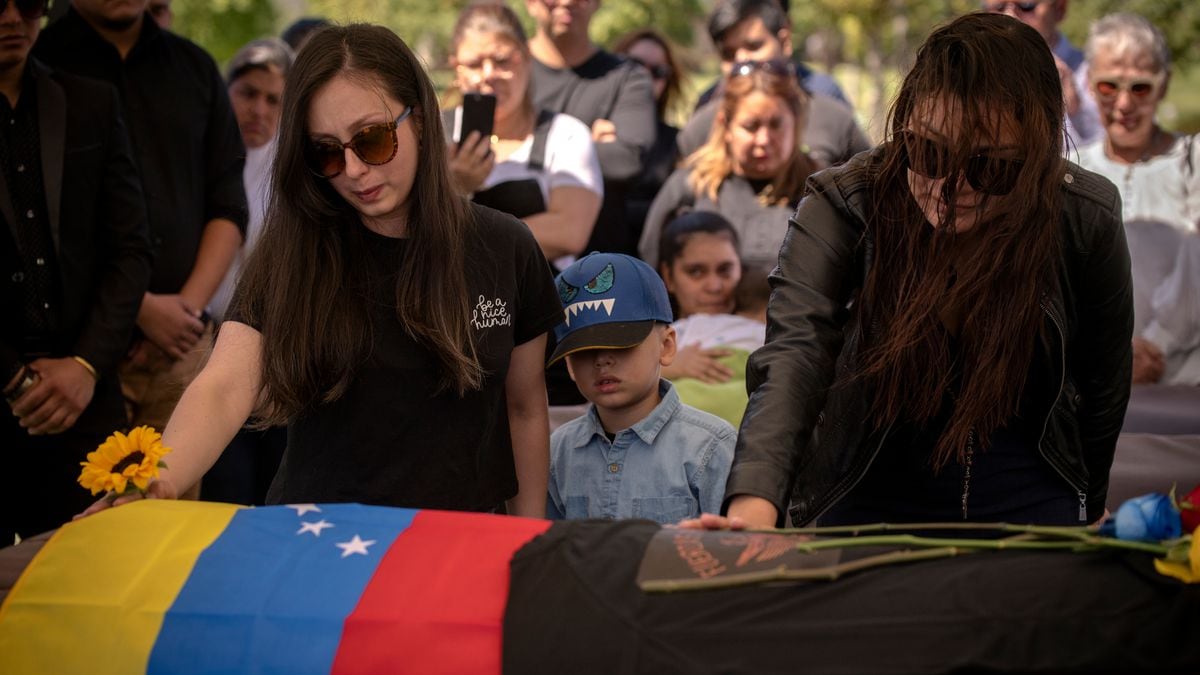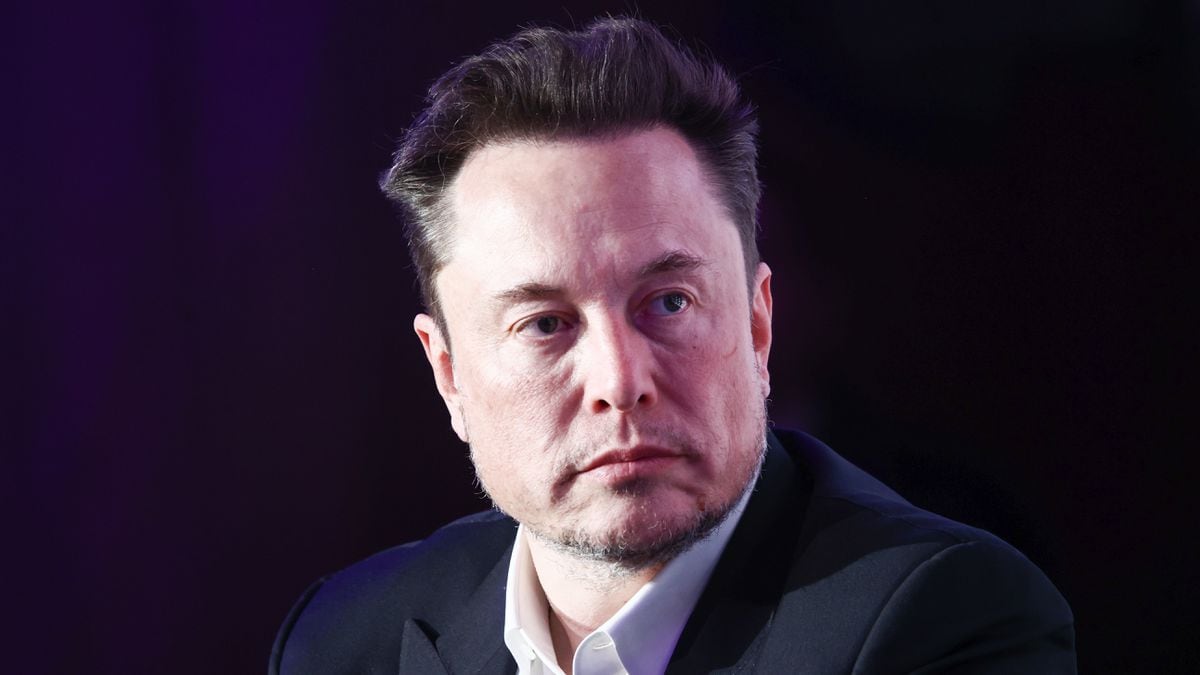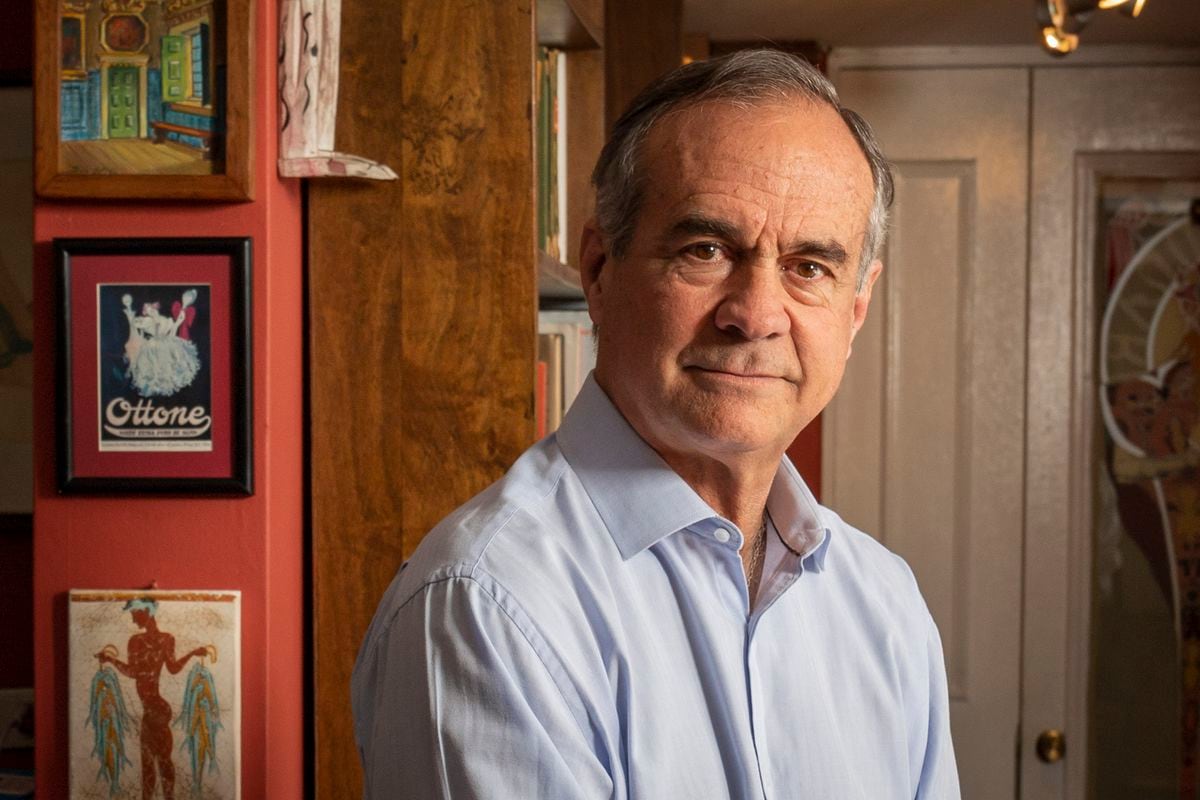The Chilean Foreign Minister, Antonia Urrejola, at the Casa de América, on Thursday in Madrid.Samuel Sánchez
Antonia Urrejola (Santiago de Chile, 53 years old) embodies the progressive turn that Chile is taking with the Government of Gabriel Boric.
The Foreign Minister assumed one of the key portfolios of the new Executive of the South American country in March, less than three months after finishing her term as president of the Inter-American Commission on Human Rights (IACHR).
The Chilean lawyer received EL PAÍS on Thursday at Casa de América, during a trip to Madrid in which she met with José Manuel Albares, her Spanish counterpart, and signed a cooperation agreement on foreign policy with the Executive of Pedro Sánchez feminist.
"Spain has made a lot of progress in this area and is helping us with the process that we have started in Chile," she says.
The minister maintains that Boric, 36, has as fundamental axes of his program the defense of human rights, democratic governance, sustainability and feminism.
The head of Chilean diplomacy calls for a much stronger union between Latin American countries to be able to face regional challenges, such as the migration and climate crises, drug trafficking and insecurity.
Urrejola, one of the 14 women in the first Executive of Chile in which men are a minority, advocates building bridges that overcome ideological differences.
“There are common problems that require common solutions.
We have to agree to have a single voice in multilateral organizations”, she declares.
Ask.
The Chilean Constitutional Convention approved the final text on Tuesday, which will be presented this Monday.
What are your great advances?
Response.
Beyond the text, I want to highlight the process itself, which began in the context of a serious political, institutional and human rights crisis in Chile (after the 2019 riots).
The political class and the democratic forces knew how to deal with the situation with an institutional response, instead of sweeping the different demands that existed on the street under the rug.
A new Constitution was one of them, but the fundamental axis was the demand for more rights —related to animals, nature, childhood, sexual diversity…— and a greater social State.
From then on, the debate was channeled through the Constitutional Convention, the only one in the world in terms of parity and with seats reserved for the indigenous population.
The fundamental thing has been how we have handled the crisis with greater democratization.
P.
In the event that the citizens reject the Constitution in the September referendum, would the Government's action be very limited?
A.
No. Obviously, some issues contained in the Constitution are very much in line with the Government's program and would facilitate its fulfillment, but this is not subject to a new Constitution, and it will be fulfilled in any case through the institutional and democratic channels that correspond, regardless of the outcome of the plebiscite.
P.
In your speeches you have stressed the importance of carrying out a feminist foreign policy.
How do you plan to apply the gender perspective to your management?
R.
We foresee it with two eyes: one towards the interior of the Foreign Ministry, where women represent an insignificant or much smaller number in the highest decision-making spaces (27% of ambassadors).
It is an issue that is going to take some time, because one cannot arrive and start appointing ambassadors who are not in the civil service career.
The other view is more political, both in bilateral relations and in multinational forums.
The gender approach, which also includes sexual diversity, must be present in free trade agreements, in bilateral agreements;
It implies a transversal look at all the decisions we make.
In multilateral forums we will continue to support all resolutions that address the issue of violence against women and girls or reproductive and sexual rights.
P.
President Boric has defended the construction of "a single voice" for Latin America.
What does this desire translate into?
R.
Latin America has been fragmented for many years and we have many common problems in the region: migration issues, drug trafficking and security, climate crisis;
now food insecurity... It is very important that Latin America has a single voice for its problems before the rest of the world, to have more strength and seek a solution to those challenges.
P.
Does that single voice seem more feasible with the victory of Gustavo Petro in Colombia and the apparent new wave of the Latin American left?
R.
Without a doubt, it is easier to have a single voice when there is an ideological rapprochement with the governments of the region.
But the president's challenge is to look for it beyond ideological questions, because the big problem has been that the governments have approached those with whom they had an ideological affinity;
the rulers change and the entire common agenda comes to nothing.
Q.
How does Gabriel Boric want to present himself to the world?
What are his priorities?
R.
First, the only voice for Latin America.
Second, a hallmark of human rights without ideological bias.
He wants to learn from the past and from the mistakes of previous leftist governments, and also from the successes, obviously.
Chile also has a clear challenge in terms of human rights, we had a dictatorship that still has consequences;
there has been no reparation, justice and truth for the victims.
And then we also had human rights violations during the (social) outbreak of 2019, for which Chile has to answer.
Feminist politics is also a major issue.
Above all, the president wants to present himself to the world with a leadership from the left, where democratic governance and human rights are essential elements.
Antonia Urrejola, on Thursday during the interview.Samuel Sánchez
Q.
Speaking of the left and human rights, some of the president's comments have bothered Venezuela and Cuba and, apparently, part of the Chilean left.
Is the relationship with these two countries a sensitive issue?
R.
The president has been very clear in condemning human rights violations beyond ideology.
In the case of Cuba, during the Summit [of the Americas in early June] he spoke about the situation of the prisoners after the protests last year.
He has been very critical of the convictions that the activists have suffered, but also of the US sanctions on Cuba;
he emphatically called for the end of the blockade, which has had a very serious effect on the entire Cuban population.
Regarding Venezuela, he has been very critical of human rights violations, but we advocated at the time that it not be excluded from the Summit.
We understand that the serious political, humanitarian and human rights crisis in Venezuela has to be resolved with Caracas through dialogue.
And I think there have been few dissenting internal voices on these issues.
Q.
As president of the IACHR, you were very tough on the situation in Nicaragua.
Can you maintain a similar position from the ministry?
R.
In fact, it is being very similar.
Now I play a completely different role, but from the Foreign Ministry we continue to denounce and express our concern for human rights in Nicaragua, particularly for the situation of prisoners who were detained and imprisoned in the electoral context.
Any person who could be a dissenting voice before the elections (last November), today is imprisoned.
P.
What options do you see to be able to reestablish diplomatic relations with Bolivia, broken for more than three decades?
R.
President Boric and President [Luis] Arce have talked to work on a common agenda, a positive agenda.
And I am optimistic about this issue, the foreign ministers are advancing together despite the differences, which historically exist and will continue to exist.
We are neighboring countries, brothers.
Follow all the international information on
and
, or in
our weekly newsletter
.
50% off
Exclusive content for subscribers
read without limits
subscribe
I'm already a subscriber



/cloudfront-eu-central-1.images.arcpublishing.com/prisa/IF24TOV3MFHHROUE2LMCLODXWI.jpg)
/cloudfront-eu-central-1.images.arcpublishing.com/prisa/U47VQFQW4FGCBFYMTUPCMC5PKE.jpg)


/cloudfront-eu-central-1.images.arcpublishing.com/prisa/2C5HI6YHNFHDLJSBNWHOIAS2AE.jpeg)

